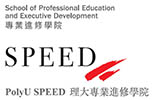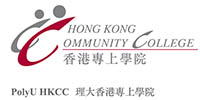雙語社評齊齊聽
[英語 (足本收聽)] Presented by CHENG, Yu-ting Joyce, Lecturer of Hong Kong Community College, The Hong Kong Polytechnic University
[普通話 (足本收聽)] Presented by Dr CHENG, Mei-seung Catherine, Lecturer of School of Professional Education and Executive Development, The Hong Kong Polytechnic University
Much attention is on the issue of financial security amid the turbulent international situation. With the intensification of Sino-US rivalry, Hong Kong's former role as an intermediary has undergone major changes. In the past, the discussion of financial security in Hong Kong was mainly about coping with financial turmoil and preventing international speculators from rocking the boat. However, what Hong Kong has to guard against now has become acts of financial war at a national level.
China is the world's largest trader of goods and foreign exchange reserves holder. In recent months, many people on the mainland have voiced concern about the risk of China's foreign exchange reserves being frozen. In Hong Kong, discussions about financial security have also increased significantly in recent months. Chief Executive-elect John Lee has proposed setting up plans in different fields such as finance with "bottom-line thinking" in his platform. There is much discussion in society as well, with some people proposing a change to the Linked Exchange Rate System (LERS) so that it is pegged to a basket of currencies rather than the US dollar alone. Some people have suggested reducing holdings of US debts and converting part of foreign exchange reserves into land reserves and so forth.
Financial security is a very complex topic and involves very specialised knowledge. Wang Yongli, a well-known mainland financier and former vice president of Bank of China, recently wrote in an article that the People's Bank of China's foreign exchange reserves — worth US$3 trillion — are currently mainly in the currencies of developed countries such as the US dollar and the Euro, and are mainly deposited in the currency issuing countries. While this arrangement is due to a historical background and structural factors, it is reasonable to appropriately adjust the size and structure of the central bank's foreign exchange reserves in response to the risk of asset freezing. Yet, foreign exchange reserves are an important means of stabilising exchange rates and countering external financial turmoil. Their high liquidity is emphasised, and they must not be confused with fiscal reserves and allocated to low-liquidity investments on a large scale. Considering the immediate needs of trade settlement and the constraints of market conditions, in reality, it might not be feasible to transfer assets in the US on a large scale all at once and convert holdings of US debts to gold in one big move. These are problems Hong Kong has to face as well.
Hong Kong has adhered to the LERS for nearly 40 years, with the Hong Kong dollar pegged to the US dollar. An important prerequisite for its effectiveness is a relatively peaceful and stable international environment. When the main theme of Sino-US relations is cooperation and Hong Kong acts as an economic bridge between the East and the West, the LERS helps Hong Kong play the role of a trade finance intermediary. But the current situation has clearly deviated from the original trajectory. The discussion on the future of the LERS has resumed. Back in April, John Lee said that he did not see why the LERS should be changed at that stage, but added that he would review the risks comprehensively.
For Hong Kong people, in the past few decades, the LERS has been like a pillar of confidence for the economy. If the Hong Kong dollar is suddenly no longer pegged to the US dollar, the psychological impact will of course be huge. But there is reason to believe that the sudden change will likely be the result of an earth-shattering black swan event in the world. It could be war between China and the US, the collapse of the US economy, or some form of Washington banning Hong Kong banks from using US dollars and so on. When any of that happens, the global and international financial order will be completely different from what they are now. What seems to be an "apocalyptical" change right now will most likely become logical then.
金融安全納日程 防禦工事早籌謀
國際形勢波譎雲詭,金融安全問題備受關注。中美對抗愈演愈烈,香港昔日的中介人角色,已出現重大變化。以往香港談的金融安全,主要是應付金融風暴、防範國際投機者興波作浪,然而現在要提防的,卻是國家級的金融戰爭行為。
中國是全球最大貨物貿易國及外匯儲備國,近月內地不少聲音關注國家外匯儲備遭凍結的風險。在香港,有關金融安全的討論,近月亦明顯增加,候任特首李家超政綱,提出要以「底線思維」,在金融等不同領域設定預案,至於坊間亦有不少議論,有人主張改變聯匯制度,與一籃子貨幣而非單單與美元掛鈎,有人主張減持美債,以及將部分外匯儲備轉為土地儲備,等等。
金融安全是非常複雜的議題,涉及很專門的知識。內地著名金融家、中國銀行前副行長王永利最近撰文指出,人行3萬億美元外匯儲備,目前以美元、歐元等發達國貨幣為主,並且主要存放在貨幣發行國,有其歷史背景及結構因素,因應資產凍結風險,適度調整央行外匯儲備規模和結構是合理的,然而外匯儲備是穩定匯價、對抗外圍金融風暴的重要手段,強調高流動性,不能將之與財政儲備混淆,大規模投放於低流動性的投資;考慮到貿易結算即時需要,以及市場條件制約,一下子大規模轉移在美資產、大舉減持美債改持黃金,現實未必可行。這些問題,香港同樣要面對。
香港奉行聯匯制度,港元與美元掛鈎近40年,行之有效的一個重要前提,是國際環境相對和平穩定,中美關係主旋律是合作,香港作為東西方經濟橋樑,聯匯制度有助香港發揮貿易金融中介角色;可是現在的情况,明顯已偏離了原有軌迹。聯匯制度前路討論再起,李家超4月時曾說,聯匯制度現階段看不到需要改變,但會全面審視風險。
過去數十年,聯匯制度之於港人,猶如經濟定心丸,倘若港元突然不再與美元掛鈎,心理衝擊當然巨大,惟有理由相信,突變的出現,很可能是世界發生了驚天動地的黑天鵝事件,也許是中美開戰、美國經濟爆煲,又或華府以某種形式禁止香港銀行使用美元等,屆時世界格局和國際金融秩序,將跟現在截然不同,現在看似是「天塌下來」的改變,到時很可能顯得順理成章。
明報社評2022.6.3






